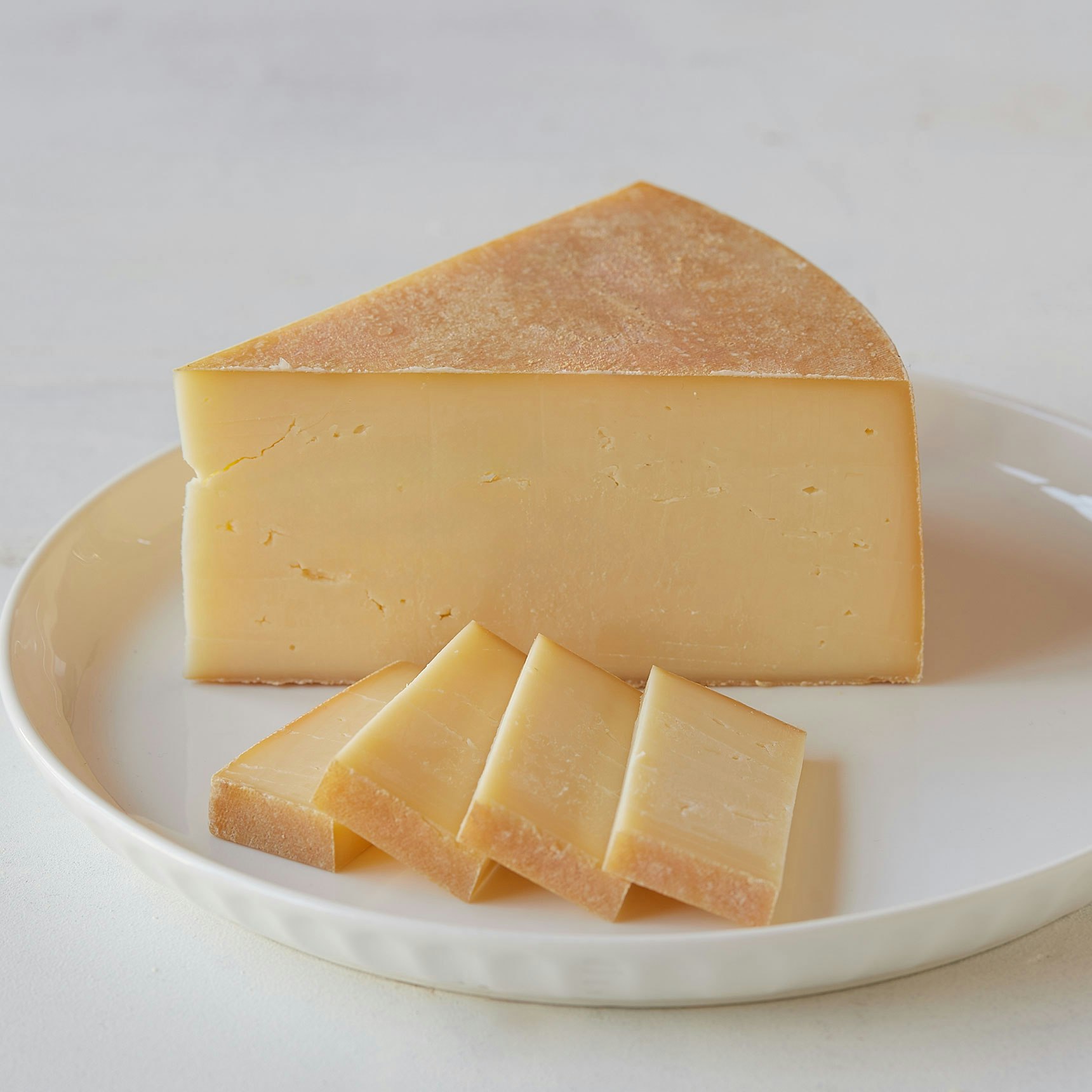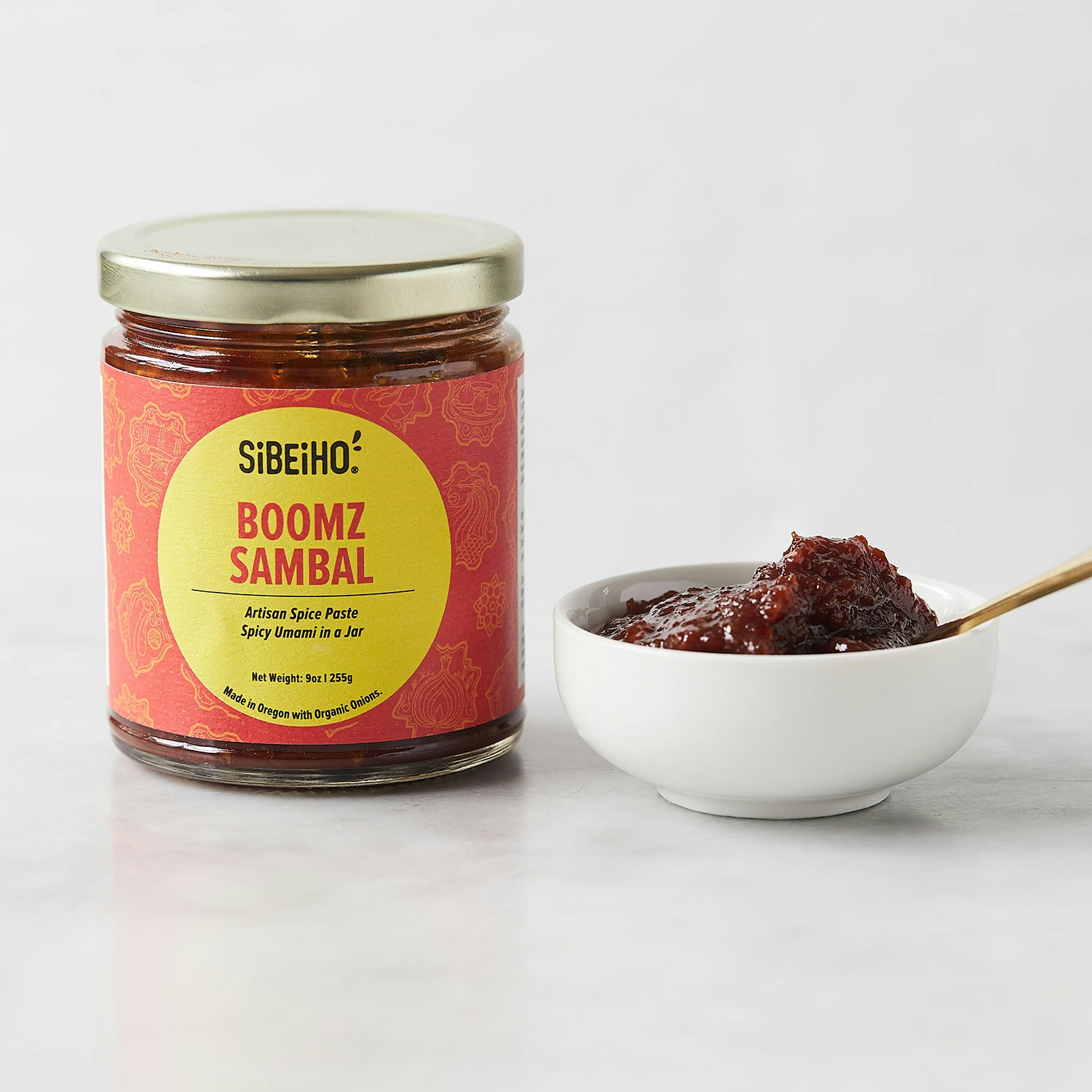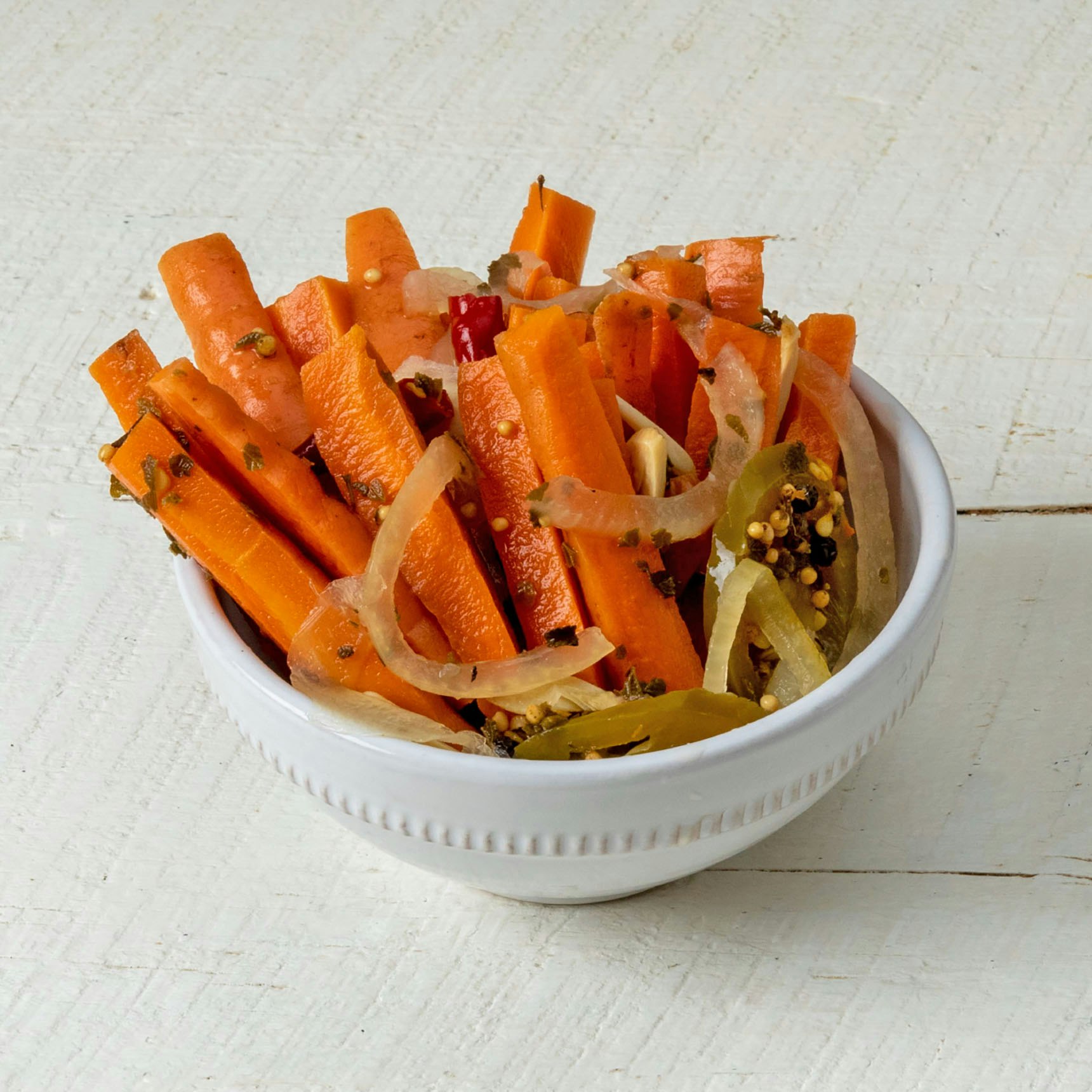Murray's Cave Aged Reserve Treeline
- Pasteurized
- Animal Rennet
- Age: 4 Months
- Cow Milk
- by Murray's Cheese Caves
- United States
- ApproachableAdventurous
- SoftHard
Treeline marries Alpine-style cheesemaking with a centuries-old Korean drink; Wisconsin terroir with NYC flair. We make it with Roelli Cheese Haus, who originally partnered with Crown Finish Caves to craft these young Alpine-style wheels. Our caves team shakes things up by washing the wheels in Makku makgeolli, a hazy, fizzy Korean rice alcohol. Each springy bite is umami-packed and meaty with a sour cream tang. It sings with a side of spice—serve with Short Creek Farm Kosho Salame or Sibeiho Boomz Sambal.
"When I taste this cheese, it screams 'cheese toastie'! I enjoy the meatiness when I'm just snacking on it, but I crave slicing off a hunk and toasting it on some hearty bread for the perfect snack or complement to a stew or soup!"
Allergens: Milk
- Born of a partnership between Crown Finish Caves and Roelli Cheese Haus, Treeline combined the Wisconsin cheesemaker’s Swiss roots and the Brooklyn caves’ affinage know-how.
- When Crown Finish Caves sadly closed in 2022, Murray’s affineurs met with the co-owner Benton Brown to assess if there were any CFC cheeses that would be a good fit for Murray’s Cheese Caves, to keep their incredible work from disappearing.
- After some experimentation and conversations with cheesemakers, Treeline was brought into our Cave Aged lineup.
- At four months old, it’s younger than most of the other cheese aged in our Alpine Cave.
- Our caves team made one change to the affinage—instead of washing the wheels in brine, we use makgeolli, a Korean unfiltered rice beverage that has a similar alcohol content to beer.
- Our affineurs wash Treeline every other day by hand with a solution of salt and Makku makgeolli—a hazy, effervescent drink with a balance of sweet and tart flavors.
- Once the cheese has developed a shiny rind and meaty aroma, we taper down to a once-a-week wash until it’s ready to be sold—with a springy paste, slightly tacky amber-hued rind, and salty snackability.
- The unfiltered makgeolli is full of complex carbohydrates, which feed the microflora that give the rind its meaty flavor.
- It’s an innovative addition to Alpine-style cheesemaking tradition—one that allows us to develop the rind faster, support the cheese throughout the aging process, and expand beyond European flavor profiles.
- At Murray’s Cheese Caves in Queens, New York, our experts age and mature cheeses to perfection, creating unique products that are exclusive to Murray’s.
- We built our caves to enhance the quality of our products, as well as to honor the craft of cheesemakers across the globe. The practice of aging cheese, known in French as affinage, was relatively rare in the United States when we built our first set of caves in 2004.
- The cheeses that mature in our caves are crafted in a variety of ways, which are reflected on their labels, described below.
- Cave Aged Original cheeses are produced from a Murray’s original recipe—we have a hand in every step of the cheesemaking process.
- Cave Aged Reserve cheeses are made in collaboration with some of our favorite cheesemakers. They send us unaged wheels, and we use unique aging techniques to produce something completely new.
- Cave Aged Limited cheeses are born out of our constant innovation and experimentation, only available for a limited time.
- Cheeses in the Cave Aged category are aged in our caves with methods that replicate the treatment they would’ve received from their original producer. This category is largely populated by bloomy rind cheeses that don’t fare well in transport.
- Murray's operates four caves, designed to ensure that each cheese matures in its ideal environment—the Bloomy Rind Cave, Natural Rind Cave, Washed Rind Cave, and Alpine Cave.
- The temperature, humidity, and microbial activity in each cave are controlled and monitored with the greatest precision.
When you receive your cheese, unpack the order and refrigerate the items. We recommend using the cheese paper we send most of our products in to store the cheese. The cheese paper helps cover the items and stop them from drying out, while also allowing the cheese to breathe. Since cheese is mold, it's a living thing! If you cut off air circulation to the cheese, you can actually cause it to suffocate and spoil at a faster rate.
Pairing Recommendations
Share





